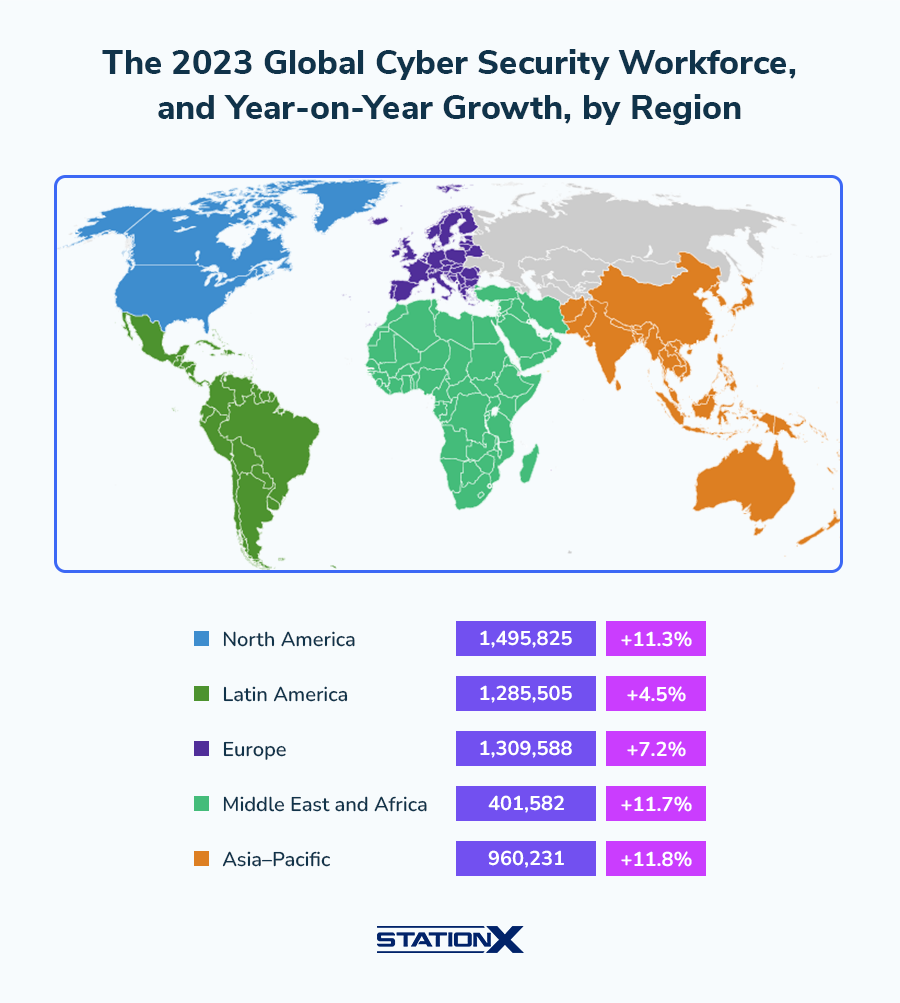In a world where technology is evolving faster than you can say 'cyber attack,' the question arises: Will AI replace Cyber Security Analysts? As automation takes center stage, it's crucial to investigate what this means for the tech guardians of our digital world.
This post will explore the intersection of AI and cyber security, examining where AI excels and where human intuition remains unrivaled. We'll dive into how AI could change the landscape of threat detection and whether cybersecurity analysts should fear or embrace this technological shift.
Get ready to learn about the future of cyber security roles and how analysts can adapt to this rapidly advancing field. By the end of this post, you'll have a clear picture of AI's role in cybersecurity and how to stay ahead in the game.
Explore this post with:
Table of contents
The Analyst's Take: AI - A Partner, Not a Pink Slip?
Many cybersecurity analysts aren't losing sleep over AI taking their jobs; they see it as a powerful ally. A striking 95% of professionals believe AI-powered solutions are key to boosting defenses against new threats [Source 1]. This tech is largely viewed as a tool that amplifies what humans can do, making tasks like data analysis and malware scanning much quicker [Source 2, Source 5].
It's not all sunshine and robots, though; around half of security practitioners worry AI could make some skills obsolete [Source 9, Source 10]. However, 66% of analysts also see AI as a clear chance for career growth and improved productivity [Source 10, Source 9]. They highlight AI's inability to match human creative thinking or ethical judgment in complex threat scenarios [Source 4].
The job role is evolving, with humans becoming "decision supervisors" for AI rather than being bogged down in routine tasks [Source 3]. To stay competitive, 73% are proactively upgrading their skills, focusing on AI-related knowledge to remain relevant [Source 10].
What Parts of Cyber Security Analyst Roles is AI Replacing?
AI is making significant headway in replacing routine tasks performed by Cyber Security Analysts. Threat detection and incident response are two areas where AI is particularly effective. AI systems can monitor real-time threats and respond faster than humans. A literature review from JISEM Journal highlights how AI utilizes machine learning to enhance threat detection, allowing analysts to prioritize complex incidents.
In addition, AI is transforming data analysis and vulnerability management. Tools powered by AI can collect and process vast amounts of threat data, identify patterns, and predict vulnerabilities, as noted by MDPI. This automation reduces the manual workload, allowing analysts to focus on strategic oversight. Phishing detection is another task where AI shines, as algorithms can be trained to recognize phishing attempts by analyzing communication patterns.
Despite AI's capabilities, Cyber Security Analysts are needed for strategic decision-making and oversight of AI systems. The integration of AI is poised to enhance efficiency but will not completely replace human expertise, as suggested by a systematic review on the use of large language models in cybersecurity.
What parts of Cyber Security Analyst jobs AI cannot replace
While AI can analyze data at lightning speed, it lacks the human touch needed for nuanced decision-making in cybersecurity. Tasks like evaluating the emotional context behind unusual user behavior are areas where humans shine. For example, an employee's sudden spike in file access might be flagged as suspicious by AI, but a human analyst could recognize it as joy after a successful project, as discussed in this LinkedIn article.
Additionally, AI struggles with false positives, and human analysts excel in assessing these scenarios. They can interpret and prioritize alerts based on a deeper understanding of the organizational context. This ability is highlighted in a UWF article that emphasizes how humans are essential in distinguishing between genuine threats and harmless anomalies.
Career Pivots for Cyber Security Analysts in the AI Era
AI is transforming the Cyber Security Analyst role by automating repetitive tasks like data analysis and alert triaging. This shift allows analysts to focus on complex problem-solving and strategic decision-making. While AI handles vast data, human oversight is key for interpreting outputs, making informed decisions, and addressing new threats like AI-generated deepfakes. Analysts will serve as critical human anchors, evaluating AI tools and applying intuition.

Credits: LinkedIn
To adapt, analysts should learn AI and machine learning concepts, including LLMs, and gain scripting skills in Python. Developing critical thinking, problem-solving, and communication skills is also important for interpreting AI-generated insights and collaborating. Career pivots can lead to specialized roles like AI Security Engineers or AI Governance Specialists, emphasizing continuous learning through certifications and understanding risks like the OWASP Top 10 for LLMs.
Cyber Security Analyst hiring trends in the US
The job market for Cyber Security Analysts in the US is currently dynamic, with approximately 182,800 positions reported in 2024. The employment outlook is bright, with a projected growth rate of 29% from 2024 to 2034, translating to around 16,000 job openings each year due to workforce transitions and retirements. This growth is primarily driven by the increasing demand for information security to combat rising cyber threats (BLS).

Credits: StationX
However, recent trends indicate a decline in job postings for Cyber Security Analysts, with a 25.88% decrease from 2022 to 2024, signaling a possible stabilization in hiring demand. This is partly attributed to outsourcing as organizations aim to reduce costs. Despite this, other cybersecurity roles, such as Cybersecurity/Privacy Attorneys, have seen a 40.74% increase in job postings due to new regulatory requirements (CyberSN).
Is Cyber Security Analyst AI safe?
The question of whether Cyber Security Analysts are safe from AI brings a mix of reactions across the industry. While AI can automate repetitive tasks like log analysis and threat detection, it lacks the human touch essential for nuanced decision-making. As noted in PurpleSec's analysis, analysts emphasize that their role won't be fully replaced but rather transformed, with AI serving as a powerful tool to enhance their capabilities.

Credits: Image Credit: PurpleSec
Moreover, the cybersecurity landscape is evolving, with AI helping to alleviate manual workloads and allowing analysts to focus on more complex challenges. According to LinkedIn insights, while AI can process data faster than humans, it cannot replicate the creativity and ethical judgment required in cybersecurity. Thus, analysts can expect to pivot toward roles that leverage AI without fear of obsolescence.
Hiring Cyber Security Analysts? Here's what to look for
When hiring a Cyber Security Analyst, focus on a blend of technical and soft skills. Candidates should have a strong understanding of network security, incident response, and AI-driven threat detection. Skills in handling cloud security and knowledge of compliance regulations like GDPR are also becoming increasingly important. Additionally, look for attributes like problem-solving and effective communication, which are key in navigating complex security challenges.
To streamline your screening process, consider using Adaface tests designed for Cyber Security Analysts. The Ethical Hacking Test evaluates candidates' skills in penetration testing and vulnerability assessment, ensuring they meet your technical requirements. For AI-related skills, the Prompt Engineering Test and Generative AI Test can help assess how well candidates adapt to the evolving cyber landscape.
Prompt Engineering Test
Generative AI Test
Ethical Hacking Test
Why Cybersecurity Analysts Should Be Excited About AI
Here's the exciting part: AI is more than just a shiny new tool in the world of cybersecurity—it's a game-changer that promises to unlock a myriad of opportunities for analysts. As highlighted in this detailed report, AI can handle routine tasks like log analysis and threat detection, freeing up analysts to tackle more intricate, strategic issues that demand human creativity and judgment.

Credits: PurpleSec
For those worried about job displacement, rest assured that AI is not here to replace you but to be your ally. According to research from Cybersecurity Tribe, the future landscape of cybersecurity is expected to thrive on the synergy between human expertise and AI capabilities. This collaboration opens doors to new roles such as AI Security Analysts and Ethical AI Auditors, offering fresh career paths for those ready to embrace the change.
Looking ahead, the future is bright for cybersecurity professionals willing to adapt and evolve. As noted by TWE Solutions, AI will serve as a "force multiplier," enhancing your skills and making your work more impactful. So, gear up for this transformative journey where AI amplifies your potential, and together, you'll build a stronger, more secure digital world.

40 min skill tests.
No trick questions.
Accurate shortlisting.
We make it easy for you to find the best candidates in your pipeline with a 40 min skills test.
Try for freeRelated posts



